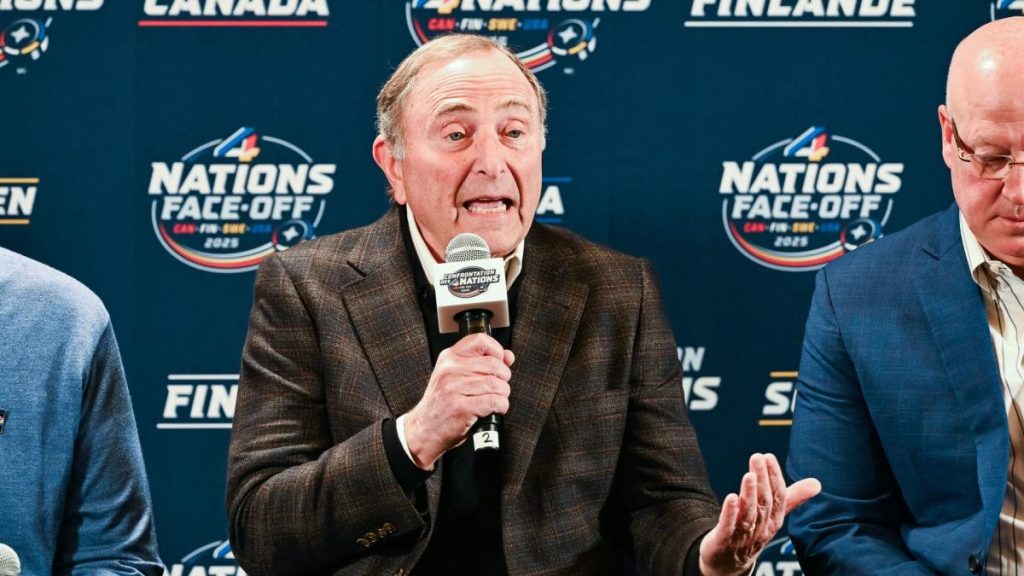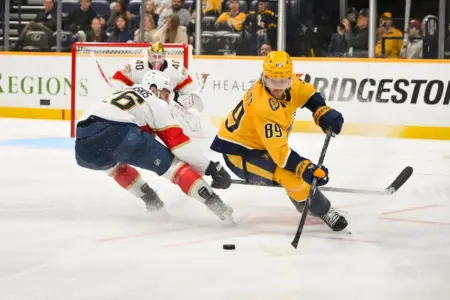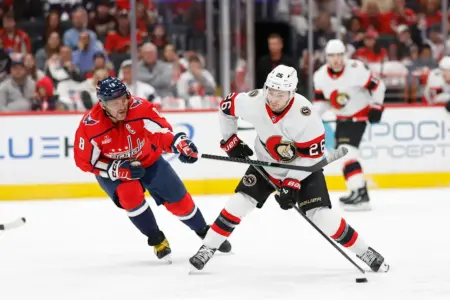NHL Announces Return of World Cup of Hockey in 2028
The National Hockey League (NHL) and the NHL Players’ Association made a significant announcement on Tuesday, revealing plans to bring back the World Cup of Hockey in February 2028. This decision comes in the wake of the 4 Nations Face-Off, a smaller-scale international tournament that was adjusted and postponed due to concerns over Russia’s participation, given the ongoing conflict in Ukraine. The return of the World Cup of Hockey is a highly anticipated event, aiming to rekindle the excitement of international hockey competition that has been less frequent in recent years. The announcement signals a commitment to regular international tournaments, with the NHL and its players planning to participate in the Olympics in 2026 and 2030 as well. This move is expected to enhance the global profile of hockey and provide fans with more opportunities to witness their favorite players in action on the international stage.
The 2028 World Cup of Hockey: What We Know So Far
While the details of the 2028 World Cup of Hockey are still being fleshed out, Commissioner Gary Bettman provided some initial insights. One of the key points is that the tournament will feature at least eight teams, creating a competitive and engaging format. The league is actively seeking bids from various cities to host the games, ensuring a location that can offer the best possible experience for both players and fans. The lack of involvement from the International Ice Hockey Federation (IIHF) is notable, as Bettman emphasized that this will be an "all NHL" event. This approach allows the NHL to have more control over the organization and scheduling of the tournament, potentially leading to a more streamlined and fan-friendly event. That and exe formact location of the games will be determined in the coming years, but the announcement has already generated significant buzz and excitement among hockey enthusiasts.
The Impact of Russia’s War in Ukraine on International Hockey
The announcement of the 2028 World Cup of Hockey was made in the context of the 4 Nations Face-Off, a tournament that faced significant changes due to the political turmoil surrounding Russia’s invasion of Ukraine. Initially planned as a larger event, the 4 Nations Face-Off was pared down to exclude Russia, reflecting the broader international community’s stance on the conflict. This decision underscores the league’s commitment to maintaining a positive and inclusive environment, despite the geopolitical challenges. The exclusion of Russia from the tournament also highlights the potential for the 2028 World Cup to face similar decisions depending on the geopolitical landscape at the time. The NHL and NHL Players’ Association are navigating these complexities with a focus on the sport and its global fan base.
Canada vs. Sweden: A Classic Match-Up
One of the most anticipated match-ups in the 4 Nations Face-Off is the game between Canada and Sweden. These two nations have a storied history in international hockey, with each team boasting a roster of world-class talent. Canada, long considered a powerhouse in the sport, has a rich tradition of producing some of the most skilled and celebrated players in hockey history. Sweden, too, has been a formidable opponent, known for its tactical approach and the development of exceptional skaters and goalies. The face-off between these two teams is always a highlight of any international tournament, and fans are eager to see how the young and emerging talents from both countries will perform on the global stage. The rivalry between Canada and Sweden is as much about the passion of the fans as it is about the skill of the players, making it a must-watch event.
The Path to 2028: Building Excitement and Preparing for Challenges
The journey to the 2028 World Cup of Hockey is already underway, with the NHL and NHL Players’ Association working diligently to ensure the tournament’s success. The league is taking a proactive approach by inviting cities to bid for hosting rights, which will help to identify the most suitable locations and create a sense of anticipation among fans. Preparing for an international tournament of this scale involves numerous logistical and organizational challenges, including player scheduling, team selection, and venue management. The NHL’s commitment to these plans, despite the ongoing uncertainties, demonstrates its dedication to the growth and development of the sport on a global level. The 2026 and 2030 Olympics also factor into the planning, as the league aims to balance its participation in these events with the World Cup, ensuring that players have ample opportunities to represent their countries on the international stage.
A Renewed Focus on International Hockey
The return of the World Cup of Hockey and the NHL’s participation in the Olympics represent a renewed focus on international hockey, which has long been a source of pride and passion for players and fans alike. These events provide a unique platform for players to showcase their skills and represent their countries, fostering a sense of national pride and unity. For fans, international tournaments offer the opportunity to see their favorite players competing against top talent from around the world, creating moments of high drama and unforgettable performances. The NHL’s decision to host these events more regularly, without the involvement of the IIHF, is a strategic move that could pave the way for a more vibrant and engaged international hockey community. As the 2028 World Cup of Hockey approaches, hockey fans worldwide are eagerly looking forward to what promises to be a thrilling and memorable tournament.











